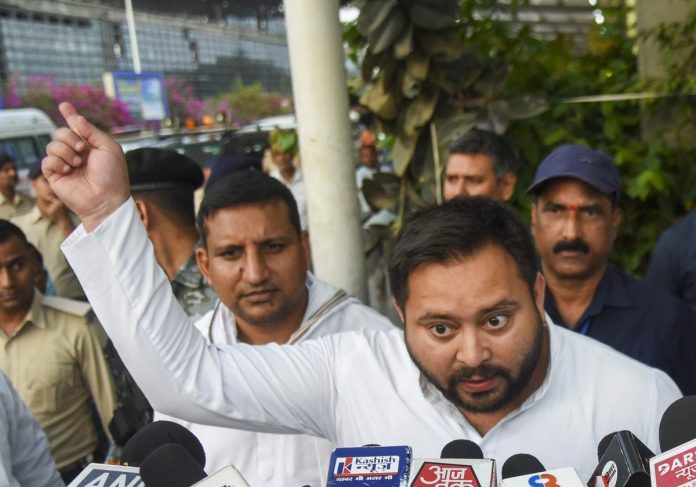Patna, April 26: RJD leader Tejashwi Yadav on Thursday delivered a scathing rebuke to Prime Minister Narendra Modi for his recent comment on ‘mangalsutras,’ highlighting the soaring gold prices that have made it unaffordable for most women. Mr. Yadav’s remarks came during a press interaction where he also drew attention to the hardships faced by people due to various crises, including the COVID-19 pandemic, demonetisation, the Pulwama terror attack, and border clashes with Chinese troops.
Referring to PM Modi’s allegation that the Congress, an ally of RJD, intended to confiscate common people’s possessions, including ‘mangalsutras,’ Yadav emphasized the importance of focusing on substantial issues during elections. He questioned the relevance of discussing ‘mangalsutras’ when the escalating gold prices have made it beyond the reach of many women.
Expressing confidence in the electoral prospects of the RJD and its allies in Bihar, where polling for five seats was scheduled in the second phase, Yadav reiterated the significance of the choice between NDA and INDIA, framing it as a decision between upholding the Constitution and posing a threat to it.
The RJD leader’s comments were also perceived as a veiled reference to former Purnea MP Rajesh Ranjan alias Pappu Yadav, who entered the electoral fray as an Independent after being denied a Congress ticket. Yadav refrained from mentioning Pappu Yadav by name but accused him of being the “B-team of BJP.”
In the larger context of the ongoing elections, Yadav underscored the dichotomy between forces that aim to safeguard the Constitution and those that pose a threat to it. His statements encapsulated the broader narrative of the political landscape, emphasizing the stakes involved in the electoral process.
As the election season unfolds, such exchanges and critiques contribute to the discourse, shaping public opinion and influencing voter sentiment. Amidst the cacophony of campaign rhetoric, Yadav’s critique stands as a reminder of the pressing issues facing the electorate, urging a focus on substantive debates and policy considerations rather than superficial rhetoric.



